Flight Buzz
Belavia to Relaunch Direct Charter Flights to Oman, Offering Belarusian Travelers Seasonal Access to Salalah Hidden Beaches and Rich Culture Starting October 24, 2025

Saturday, July 26, 2025
Starting October 24, 2025, Belavia will relaunch direct charter flights to Oman, providing Belarusian travelers with seasonal access to Salalah’s hidden beaches and rich cultural experiences. This seasonal service will run through March 2026, allowing travelers to explore one of the Arabian Peninsula’s most serene and untouched destinations. With its idyllic climate, pristine beaches, and vibrant cultural heritage, Salalah offers an affordable and tranquil alternative to more crowded tourist spots, making it an ideal getaway for those seeking a unique blend of relaxation and adventure. The return of these direct flights reflects the growing demand for this exotic destination among Belarusian tourists, offering a perfect escape to discover the charm and beauty of Oman.
Belarusian carrier Belavia to resume its charter flights to Oman, starting October 24, 2025, offering new traveling possibilities to discover a truly magical Arabian world. Running until March 2026, the seasonal service will provide Belarusian tourists a chance to explore a different and largely untrodden part of the Middle East, a place that offers beauty, culture and adventure.
The seasonal program is a continuation of Belavia’s successful launch of its inaugural charter service to Salalah in February 2025. After seeing positive demand, the airline is expanding its network to include Oman as a new destination for those looking for an affordable and tranquil holiday away from the crowds. With its rich culture, pristine beaches, and lush landscapes, Oman is increasingly becoming a go-to destination for travelers seeking an exotic yet relatively untouched locale.
Oman: A Rising Star in Middle Eastern Travel
Oman, located on the southeastern coast of the Arabian Peninsula, is known for its diverse terrain, rich heritage, and welcoming atmosphere. While many travelers are familiar with the more popular destinations in the region, Oman has maintained its charm as a hidden gem that offers something for everyone—whether it’s the allure of scenic beaches, historical landmarks, or an authentic cultural experience. For Belarusian travelers, Oman is an ideal destination that offers a peaceful retreat, far removed from the hustle and bustle of other tourist-heavy locations.
In particular, Salalah—a coastal gem located in the Dhofar region—has been gaining attention for its lush greenery and pleasant climate, making it an appealing alternative to more traditional beach destinations like the Maldives or Seychelles. Salalah’s natural beauty, paired with its unique cultural elements, makes it a perfect destination for those seeking a serene yet enriching holiday.
Salalah: A Tranquil Oasis on the Arabian Sea
Often called the “Caribbean of the East,” Salalah boasts some of the most idyllic beaches in the region, coupled with a unique climate that is cooler and more temperate compared to the rest of the Arabian Peninsula. This makes Salalah a year-round destination for those seeking a beach holiday. The region transforms during the Khareef monsoon season, where lush greenery and cooler temperatures provide an ideal escape from the intense heat of the surrounding deserts. During this season, waterfalls and vibrant flora emerge, turning Salalah into a true natural paradise.
Beyond its natural wonders, Salalah is also rich in cultural and historical significance. The city’s heritage dates back to the ancient frankincense trade, which shaped the region’s economy and culture. The ruins of Sumhuram, a historic city that thrived from the 3rd century BCE, offer a glimpse into Oman’s long-standing role in international trade. Visitors can explore Salalah’s souks, where traditional handicrafts and local spices—such as frankincense—are sold, giving tourists a chance to experience Oman’s cultural history firsthand.
Omani Coffee: A Deep-Rooted Tradition
An essential part of the Omani experience is the coffee, or qahwa. Omani coffee is traditionally brewed with spices like cardamom, saffron, and rose water, making it a unique and aromatic beverage enjoyed in social settings. It’s not just the taste but also the cultural significance of the drink that makes it an unforgettable experience for travelers. In Salalah, sipping qahwa while taking in the scenic surroundings is a ritual that encapsulates the hospitality and charm of Oman.
Oman’s coffee culture is deeply intertwined with its sense of community, where offering coffee is a symbol of hospitality and friendship. For visitors, it’s an immersive cultural experience that offers more than just a warm drink—it’s a taste of Oman’s heritage and generosity.
Belavia Expands Access to Oman
Belavia’s decision to relaunch charter flights to Salalah underscores the airline’s commitment to broadening its range of international destinations. After the success of the initial charter service in 2025, the airline is now investing in regular seasonal services to Oman, making it an easily accessible destination for Belarusian tourists. The new seasonal flights will cater to those eager to explore Oman’s unique beauty, cultural offerings, and rich history.
This move by Belavia not only benefits Belarusian travelers, but it also helps boost Oman’s growing tourism industry. With direct flights to Salalah, visitors can now easily access the city’s beaches, historical sites, and cultural landmarks, making it a convenient and attractive vacation spot. The seasonal nature of the service gives travelers plenty of time to plan their trip, taking advantage of Oman’s temperate weather during the cooler months.
Oman’s Bright Future as a Tourism Hub
With its increasing popularity as a vacation destination, Oman has all the elements needed to become a major player in global tourism. Its stunning landscapes, fascinating cultural heritage, and warm hospitality have made it a top choice for those seeking an off-the-beaten-path destination that offers both relaxation and adventure. As more travelers discover what Oman has to offer, the future of its tourism industry looks bright.
Belavia’s new charter flights to Salalah make it easier than ever for travelers to explore this hidden gem of the Arabian Peninsula. Whether visitors are looking to unwind on Salalah’s peaceful beaches, dive into the region’s rich history, or enjoy the unique cultural experiences, Oman provides a diverse range of attractions. The airline’s seasonal service ensures that travelers have plenty of opportunities to experience all that this incredible destination has to offer.
Starting October 24, 2025, Belavia will relaunch direct charter flights to Oman, offering Belarusian travelers seasonal access to Salalah’s pristine beaches and rich cultural heritage, making it an ideal destination for a unique and tranquil getaway.
From its stunning scenes of natural beauty to its cultural diversity, warm hospitality, and refreshing insouciance, Oman has everything to be the next key stop for travelers in search of a unique but easy getaway. Belarusian holidaymakers are welcomed into the Arabian wonderland with this renewed Belavia service to Salalah.
Flight Buzz
Lufthansa Cancels Over Forty New Flights Across Europe, Stranding Travelers on Major Routes Including Frankfurt, Munich, Berlin and London
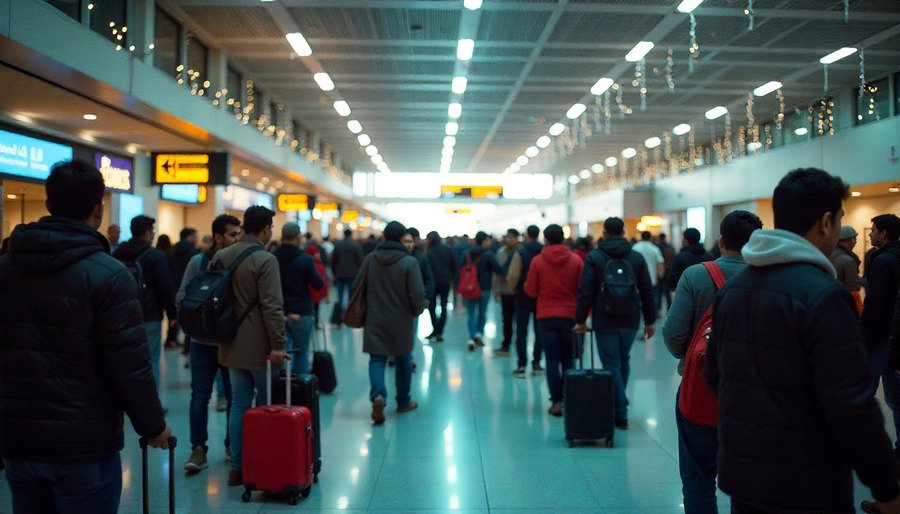
Sunday, July 27, 2025
Lufthansa cancelled over forty flights across Europe, leaving passengers on major routes locked out of flights from a variety of major cities including Frankfurt to Munich, Berlin and London, among others. The cancellations, which have upended air travel on some of the most traveled routes in Europe, were due to unforeseen operational challenges that were out of the company’s hands, like bad weather. In the wake of these cancellations, affected passengers are now left to deal with the unknown and face long waits, and many are now scrambling to replace their disrupted travel plans.
Severe weather has caused significant disruptions to Lufthansa’s operations, resulting in the cancellation of 44 flights with is around 4% of schedules and delays for 139 others, impacting 14% of its scheduled routes. Major routes like Frankfurt to Munich, Berlin to Frankfurt, and London to Frankfurt were among the hardest hit. The adverse conditions, including storms and low visibility, have left many travelers stranded across Europe, particularly on high-demand connections such as Zurich, Bologna, and Berlin. While Lufthansa is working to accommodate affected passengers with rebooking and compensation options, the chaos is expected to continue for the next few days as operational delays ripple through the airline’s network. Travelers are advised to regularly check their flight status and reach out to customer service for assistance.
Affected Routes and Cities
The cancellations have affected some of Lufthansa’s busiest and most crucial routes, causing chaos at airports across Europe. The following are some of the key routes that have been canceled or delayed:
- Frankfurt to Munich (DLH102, DLH108) – Multiple flights between these two major hubs have been canceled, leaving travelers unable to connect to further destinations.
- Munich to Frankfurt (DLH101, DLH107) – Flights between Munich and Frankfurt are some of the most highly traveled in Europe, and their cancellations are expected to have widespread impacts on other connections.
- Berlin to Frankfurt (DLH189, DLH199) – Cancellations on these routes have disrupted business and leisure travelers alike, particularly those with connecting flights in Frankfurt.
- Frankfurt to London (DLH916, DLH917) – Affected flights between Frankfurt and London Heathrow have left passengers scrambling for alternate transport options.
- Frankfurt to Zurich, Bologna, and Milan (DLH1196, DLH288, DLH254) – Passengers flying to destinations in Southern Europe have faced similar delays and cancellations.
- Frankfurt to Amsterdam (DLH998) – This route, commonly used by international travelers, has been another major casualty in the recent wave of disruptions.
The impact of these cancellations has been widespread, with many travelers stuck at airports or facing hours-long delays. Passengers were left confused and frustrated as their flight plans were disrupted, especially during peak travel hours.
Operational Challenges Beyond Lufthansa’s Control
While Lufthansa has been the focus of many complaints, it is important to note that the cancellations were not a direct result of the airline’s decisions. Adverse weather conditions, which have been affecting Europe over the past few days, are largely to blame. Storms, heavy winds, and low visibility have led to air traffic restrictions, particularly in northern and central Europe. These conditions have made it difficult for Lufthansa to operate flights safely, leading to these widespread cancellations.
Additionally, Lufthansa has mentioned operational issues, which could include staffing shortages and logistical challenges related to the weather. While the airline is doing its best to assist passengers, the backlog of cancellations is creating a ripple effect throughout its network.
Passenger Assistance and Compensation
For travelers affected by the cancellations, Lufthansa is advising passengers to check the status of their flights regularly. The airline has updated its flight tracking system to allow passengers to easily find out if their flight is impacted. Passengers are also encouraged to reach out to Lufthansa’s customer service team for assistance with rebooking options, or for any questions regarding compensation or other alternatives.
Travelers whose flights have been canceled due to extraordinary circumstances, such as severe weather, may not be entitled to compensation under EU regulations. However, Lufthansa has stated that it will offer meal vouchers, overnight accommodation, and rebooking on the next available flights where possible. In cases where delays are over three hours, compensation may be available in line with EU flight delay regulations, depending on the situation.
Travel Tips for Affected Passengers
If you are affected by the cancellations, here are some tips to help you navigate the disruption:
- Check Flight Status Regularly: It’s crucial to stay updated on your flight’s status, especially in case of last-minute changes. Use Lufthansa’s mobile app or website for real-time flight information.
- Contact Lufthansa Customer Service: For assistance with rebooking your flight or finding alternative travel options, reach out to Lufthansa’s customer service as soon as possible. Many travelers are facing long wait times, so be prepared for delays in getting assistance.
- Understand Your Rights: Know that if your flight is canceled due to weather, Lufthansa may not be legally obligated to offer compensation. However, they will offer alternative transportation and, where applicable, food, accommodation, and rebooking services.
- Consider Alternative Transportation: If your rebooking with Lufthansa is not suitable or takes a long time, consider other travel options such as trains or buses, especially for shorter routes.
- Stay Calm and Patient: Travel disruptions can be stressful, but staying calm and informed will make the experience easier. Allow extra time at the airport for security checks, and be ready for possible longer wait times.
Lufthansa has canceled over forty flights across Europe, stranding travelers on major routes like Frankfurt, Munich, Berlin, and London, due to severe weather conditions disrupting air traffic. The cancellations have left passengers scrambling for alternative arrangements as operations are delayed across the continent.
The Road Ahead for Air Travel in Europe
The disruption of these over forty Lufthansa flights highlights the fragility of air travel in the face of unpredictable weather. With Europe’s air traffic volume steadily increasing as summer travel picks up, it’s likely that passengers will experience further delays or cancellations over the coming days. While Lufthansa is taking steps to alleviate the backlog, the ripple effect from this round of cancellations is expected to be felt for some time.
Travelers planning to fly in the next few days are encouraged to keep an eye on their flight status and to make sure they have contingency plans in place in case of further disruptions. With the airline industry still recovering from the pandemic and facing increasing demand, these challenges may persist as weather patterns and staffing shortages continue to impact operations.
Flight Buzz
Moscow Pyongyang Flights Resume After Three Decades
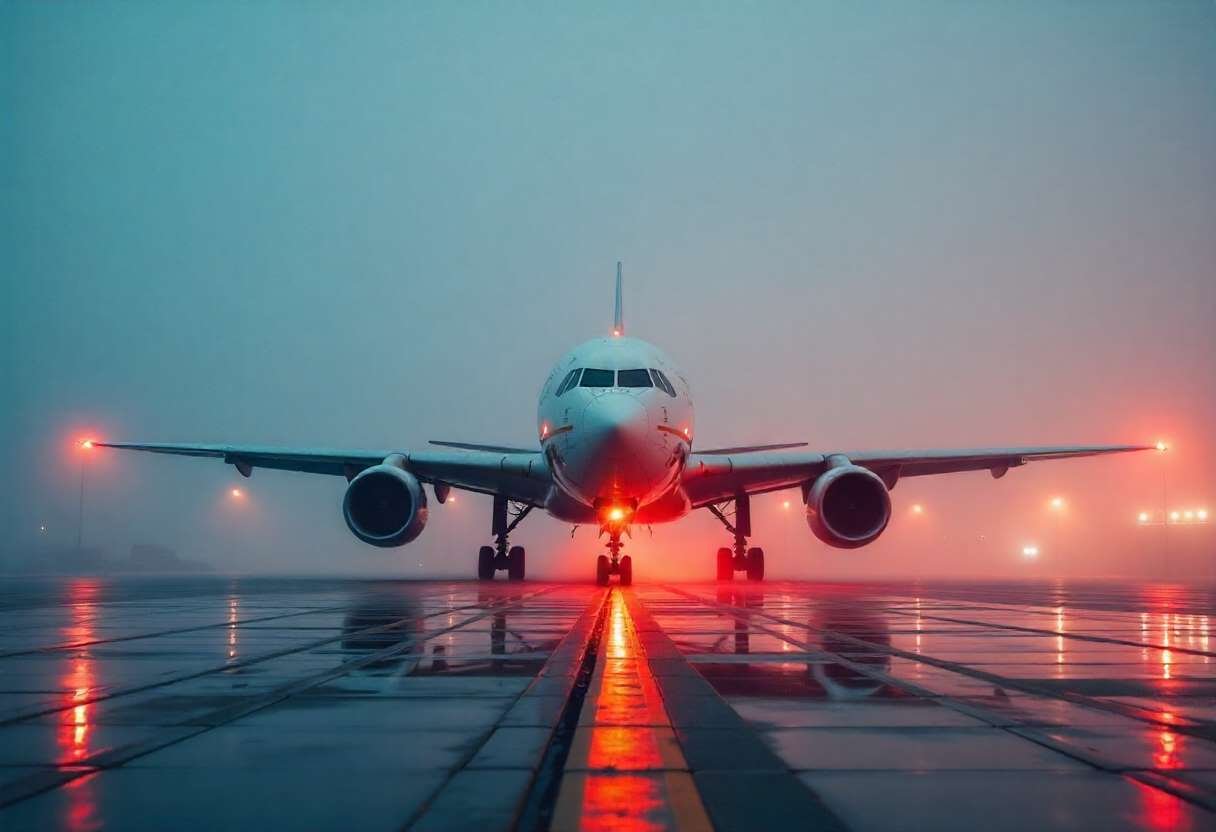
Sunday, July 27, 2025
Russia is preparing to resume direct passenger flights between Moscow and Pyongyang, after thirty years. This historic resumption reflects an intensifying strategic alliance and may subtly influence regional transit flows in Southeast Asia including travel patterns involving Thailand.
Government-Confirmed Flight Approval
The Ministry of Transport of the Russian Federation officially announced that flights will commence on July 27, 2025. The flights will operate monthly initially, with possible expansion to twice weekly based on demand. The aircraft is expected to be a Boeing 777‑200ER with a seating capacity of 440 passengers for the eight‑hour journey.
Russia’s civil aviation authority Rosaviatsia granted permission to Nordwind Airlines to operate the route. The transport ministry confirmed that, although monthly at first, the flights are designed to build demand before increasing frequency.
Rail Revival and Broader Transport Links
Complementing the flight resumption, Russian Railways restored an eight-day passenger train service between Moscow and Pyongyang, making it one of the longest direct train journeys in the world. This rail link complements air travel, symbolizing deepening transport integration.
Strategic and Diplomatic Context
These developments come against the backdrop of Russia-North Korea rapprochement under a Comprehensive Strategic Partnership Treaty signed in June 2024, which enshrined cooperation across political, security, and cultural domains . Russia’s Security Council Secretary Sergei Shoigu confirmed at a Moscow press briefing that regular flights will resume after more than three decades of absence.
Implications for Regional Transit and Tourism
Although the route links two distant capitals, the ripples extend into Southeast Asia. Thailand’s tourism industry—particularly its gateways like Bangkok, Phuket, and Chiang Mai—often depends on connecting traffic through transit hubs like Doha, Dubai, Singapore, Kuala Lumpur, and even European nodes. While Russia–North Korea flights may not directly involve Thailand, shifts in global aviation networks can influence how multi‑leg itineraries are planned.
Thailand’s tourism authorities have previously observed that diversions or new routes in distant regions may shift traffic away from traditional stopover cities in Asia. For example, Russian or DPRK tourists may adjust global routing in future itineraries, subtly influencing inbound flows in Thailand via alternate hubs.
Human Angle: Enhancing Connectivity, Easing Barriers
For ordinary travellers—especially Russian citizens—it means new access to North Korea without relying on indirect transit via Vladivostok or charter flights. For tourism boards and travel agents, increasing route options signals changing planning needs. Across thousands of kilometers, the tourism ecosystem—including Thailand’s inbound segment—must stay alert to shifts that affect connection choices for Asian and Russian tourists.
Looking Ahead: Growth and Monitoring
As Nordwind Airlines builds up passenger frequency, Russian and North Korean transport authorities will evaluate demand. If flights become bimonthly or weekly, more regular logistics and visa facilitation could follow.
Thailand’s Tourism Authority and Ministry of Tourism & Sports will closely monitor these developments. If Russia–North Korea connectivity increases, travel patterns—especially those involving Russian tourists touring Asia—might reconfigure itineraries and stopover flows that skirt traditional Southeast Asian nodes.
Conclusion
In simple terms: Russia is restarting direct Moscow–Pyongyang passenger flights on July 27, 2025, after a break of over three decades. The move is part of deepening strategic ties and broader transport reintegration. Though Thailand isn’t a direct destination, its tourism sector may feel subtle shifts via global transit realignments as travel routes evolve. For everyday travellers and global tourism planners alike, this marks a significant shift in cross-border connectivity.
Flight Buzz
Batik Air Ends Kuala Lumpur–Amritsar Flights

Sunday, July 27, 2025
Batik Air Malaysia has officially terminated its Kuala Lumpur–Amritsar service. As part of broader safety-driven route restructuring, the airline is also adjusting flight operations which may ripple into Thailand’s tourism sector through transit disruptions.
The first paragraph is straightforward and personal: passengers traveling via Kuala Lumpur to Thailand may now find fewer connections available. This unexpected route change adds to travel uncertainty even for those not directly flying to India.
Network Reconfiguration: What Changed and Why
In coordination with government aviation oversight, Batik Air has begun rerouting or cancelling selected services linked to the suspended destinations. Official statements emphasize safety as the top priority and confirm continued close monitoring of regional developments.
While passengers affected by the route suspension are being offered refunds or travel rebooking options, Batik Air is also reshaping its schedule. Certain long-haul flights by Malaysia Airlines such as London and Paris routes have been diverted via Doha for fuel and clearance, showing regional airlines’ broader strategy when primary airspace becomes restricted.
Travel Habits and Transit Confidence Affected
Kuala Lumpur International Airport serves as a major hub feeding international tourism flows—including to Bangkok, Phuket, Chiang Mai, and other Thai destinations. With fewer Indian transit passengers passing through KLIA, tourism operators in Thailand are noting subtle changes in booking behavior.
Thai travel agents sharing multi-leg itineraries (e.g. India → Malaysia → Thailand) report cancellations or route changes, impacting package tours that rely on KL stopovers. Thailand’s Tourism Authority and Ministry of Tourism & Sports have in the past acknowledged how disruptions in regional connectivity may indirectly reduce arrivals, even if tourism to Thailand itself remains unaffected.
Thailand Tourism: Indirect But Noticeable Effects
Although Thailand is not the affected destination, its tourism sector may still feel the impact indirectly. Malaysia acts as a major symlink for travelers from South Asia into Southeast Asia. With fewer transit passengers arriving via Kuala Lumpur to hop on onward flights to Bangkok, Thailand-bound group tours and individual itineraries are being reshuffled.
Tour operators in Bangkok and Phuket indicate they are watching connectivity trends closely. Trip planners and multi-destination packages that included KL stopovers must now pivot—either shifting to direct India–Thailand flights, air carriers from other hubs, or using alternate routing. This logistical rebooking could result in slight drop-offs in passenger numbers or higher costs for travelers.
Future Outlook: Regional Flexibility and Planning
With geopolitical tensions prompting route disruptions, airlines like Batik Air must maintain agility. The changes also highlight how dependent travel ecosystems are on well-functioning transit hubs. Thailand’s tourism bodies may need to prioritize diversifying source markets and strengthening direct connectivity—for example with Indian and South Asian carriers—to offset reliance on transits through Malaysia.
As Batik Air phases out its Kuala Lumpur–Amritsar leg, it also appears to be focusing on stabilizing its network elsewhere. According to aero routes reporting, other routes—including services to Thailand itself remain active, though the overall network is being pruned in light of operational and geopolitical shifts.
Conclusion
Batik Air has ended its Kuala Lumpur–Amritsar service due to regional security issues, restructured its flight network, and is assisting affected passengers with rerouting or refunds. Even though Thailand isn’t the direct focus of these flight changes, travel flows through Kuala Lumpur may see a decline, indirectly affecting inbound tourism to Thailand. Regional aviation authorities and tourism agencies are monitoring developments, seeking to maintain seamless travel through Southeast Asia amidst evolving geopolitical realities.
-

 Brand Stories6 days ago
Brand Stories6 days agoBloom Hotels: A Modern Vision of Hospitality Redefining Travel
-

 Brand Stories1 day ago
Brand Stories1 day agoCheQin.ai sets a new standard for hotel booking with its AI capabilities: empowering travellers to bargain, choose the best, and book with clarity.
-

 Destinations & Things To Do7 days ago
Destinations & Things To Do7 days agoUntouched Destinations: Stunning Hidden Gems You Must Visit
-

 AI in Travel7 days ago
AI in Travel7 days agoAI Travel Revolution: Must-Have Guide to the Best Experience
-

 Brand Stories3 weeks ago
Brand Stories3 weeks agoVoice AI Startup ElevenLabs Plans to Add Hubs Around the World
-

 Brand Stories2 weeks ago
Brand Stories2 weeks agoHow Elon Musk’s rogue Grok chatbot became a cautionary AI tale
-

 Destinations & Things To Do1 day ago
Destinations & Things To Do1 day agoThis Hidden Beach in India Glows at Night-But Only in One Secret Season
-

 Asia Travel Pulse3 weeks ago
Asia Travel Pulse3 weeks agoLooking For Adventure In Asia? Here Are 7 Epic Destinations You Need To Experience At Least Once – Zee News
-

 AI in Travel3 weeks ago
AI in Travel3 weeks ago‘Will AI take my job?’ A trip to a Beijing fortune-telling bar to see what lies ahead | China
-

 Brand Stories3 weeks ago
Brand Stories3 weeks agoChatGPT — the last of the great romantics

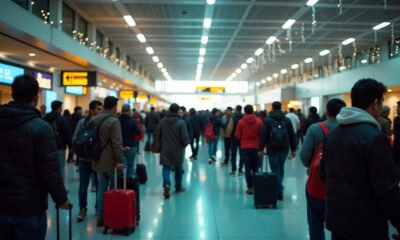



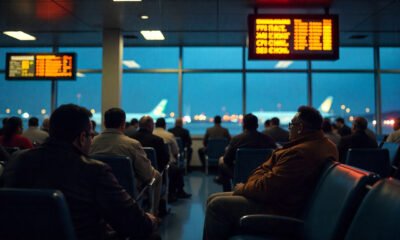

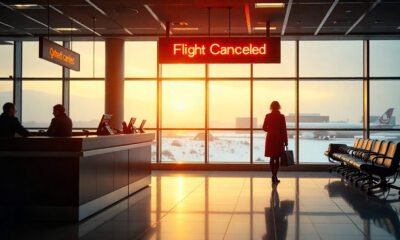





You must be logged in to post a comment Login